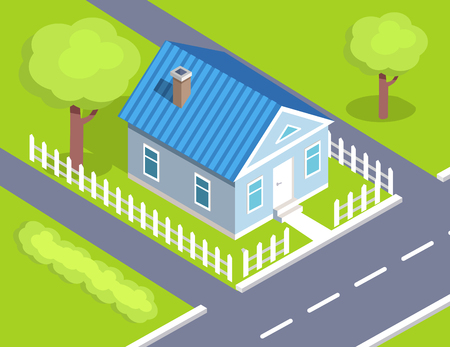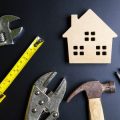1. Skipping Mortgage Pre-Approval
Many first-time homebuyers get excited about finding their dream home and jump straight into house hunting. But one of the biggest mistakes you can make is skipping the mortgage pre-approval process. Without it, you’re essentially shopping blind—not knowing what price range you can actually afford.
Why Mortgage Pre-Approval Matters
A mortgage pre-approval gives you a clear picture of how much a lender is willing to let you borrow based on your income, credit score, debts, and other financial factors. This not only helps you set a realistic budget but also shows sellers that youre a serious buyer. In competitive markets, having a pre-approval letter can even give you an edge over other buyers.
Benefits of Getting Pre-Approved
| Benefit | Why It Matters |
|---|---|
| Clear Budget | You know exactly how much home you can afford, avoiding disappointment or overextending financially. |
| Stronger Offer | Sellers are more likely to accept offers from buyers who are pre-approved because it means financing is likely secured. |
| Saves Time | You won’t waste time looking at homes outside your budget. |
| Smoother Process | Your loan process can move faster once your offer is accepted. |
How to Get Pre-Approved
The process is simpler than most people think. You’ll need to provide basic financial information like pay stubs, W-2s, bank statements, and permission for the lender to check your credit. Most lenders can give you a pre-approval letter within a few days if everything checks out.
If youre unsure where to start, talk to your bank or consult with a mortgage broker who can help guide you through the steps. Taking this important first step will help ensure your homebuying journey starts off on the right foot.
2. Underestimating the True Cost of Homeownership
Many first-time homebuyers focus only on the monthly mortgage payment when planning their budget. But owning a home comes with several other expenses that can sneak up on you if youre not prepared. Forgetting to factor in costs like property taxes, homeowners insurance, routine maintenance, and unexpected repairs can lead to financial stress down the road.
Hidden Costs New Homeowners Often Overlook
Heres a breakdown of common homeownership expenses beyond your mortgage:
| Expense | Estimated Monthly Cost (Varies by Location) | Description |
|---|---|---|
| Property Taxes | $200 – $600+ | Taxes paid to local government based on your homes assessed value. |
| Homeowners Insurance | $75 – $150 | Covers damage from fire, theft, and other risks. Required by most lenders. |
| Maintenance & Repairs | $100 – $300+ | Includes fixing leaks, HVAC servicing, pest control, etc. |
| HOA Fees (if applicable) | $50 – $400+ | Monthly fee for shared community services and amenities. |
| Utilities | $200 – $500 | Electricity, water, gas, trash collection, internet, and more. |
Why Budgeting Beyond the Mortgage Matters
If you don’t plan for these additional costs, you could find yourself house poor—meaning most of your income goes toward your home with little left over for savings or emergencies. To avoid this trap:
- Create a detailed monthly budget that includes all recurring home-related expenses.
- Set aside at least 1% of your home’s value annually for maintenance and repairs.
- Build an emergency fund to cover surprise costs like a broken furnace or roof leak.
A Helpful Tip
If youre using a mortgage calculator before buying, make sure it includes estimates for taxes and insurance. Some advanced calculators even allow you to add HOA fees and maintenance estimates so you get a more accurate picture of what youll be spending every month.
Pro Tip:
If youre buying in a new area, talk to locals or your real estate agent about typical utility bills and maintenance issues specific to the region—this will help you set realistic expectations.
Being financially prepared means knowing the full scope of what it takes to own a home—not just paying the bank each month but keeping everything running smoothly without derailing your budget.
![]()
3. Not Researching the Neighborhood
Buying your first home is exciting, but choosing a house without learning about the neighborhood can lead to regrets. A beautiful home won’t feel right if the area doesn’t match your lifestyle or needs. Before making an offer, take time to explore and evaluate the community around the property.
Why the Neighborhood Matters
The neighborhood you live in affects your daily life just as much as the home itself. Things like safety, schools, commute times, and amenities can make a big difference in how happy you are with your purchase. Many first-time buyers get caught up in the excitement of finding a house they love and forget to look at what’s outside their front door.
Key Factors to Consider
Here are some important things to check before buying:
| Factor | What to Look For |
|---|---|
| School Districts | Even if you don’t have kids, good schools increase property value and resale potential. |
| Safety | Research crime rates online or talk to local police or neighbors. |
| Commute Times | Test drive your route during rush hour to see how long it really takes. |
| Amenities | Look for grocery stores, parks, restaurants, and public transit nearby. |
Tips for Researching a Neighborhood
- Visit at different times of day: A quiet street during lunch might be noisy at night.
- Talk to neighbors: They can give honest insight into the community vibe.
- Check online forums and apps: Websites like Nextdoor or local Facebook groups offer unfiltered resident opinions.
- Walk around: See how well homes and yards are maintained—it’s often a sign of how much pride people take in their area.
Avoid Surprises After You Move In
No one wants to move into their dream home only to find out later that it’s in a high-crime area or too far from work. Doing your homework on the neighborhood helps ensure that both the house and its surroundings support your needs and lifestyle.
4. Waiving the Home Inspection
In a hot seller’s market, it might feel like you have to do whatever it takes to win the bid on your dream home. One common strategy buyers use to make their offer more attractive is waiving the home inspection. While this can speed up the buying process, it often leads to expensive problems down the road.
Why Some Buyers Skip the Inspection
Home inspections take time and may uncover issues that require negotiation or repairs. In competitive markets, sellers may prefer offers without contingencies, so some buyers skip the inspection entirely in hopes of closing faster. However, this can be a risky move.
The Risks of Skipping a Home Inspection
| Potential Issue | Possible Cost After Purchase |
|---|---|
| Roof Damage | $5,000 – $15,000+ |
| Foundation Problems | $10,000 – $30,000+ |
| Mold or Water Damage | $2,000 – $10,000+ |
| Outdated Electrical System | $3,000 – $8,000+ |
| Pest Infestation | $500 – $5,000+ |
The Smart Move: Always Get an Inspection
A professional home inspection can reveal hidden issues that arent visible during a walk-through. It also gives you leverage to negotiate repairs or price reductions before closing. Even if youre buying “as-is,” knowing what youre getting into helps you plan and budget accordingly.
Tips for First-Time Buyers
- Select a certified inspector: Make sure they’re licensed and experienced in your state.
- Be present during the inspection: This allows you to ask questions and see issues firsthand.
- Review the report carefully: Don’t be afraid to ask your agent or inspector for clarification.
You don’t want your first home to turn into a money pit. Spending a few hundred dollars upfront on a home inspection could save you thousands in unexpected repairs after move-in. It’s one of the best investments you can make during the home buying journey.
5. Letting Emotions Drive the Purchase
Buying your first home is exciting—and it should be! But when emotions take over, it’s easy to make decisions that might not be in your best interest long-term. Falling in love with a house can cause first-time buyers to overlook red flags, stretch their budget, or ignore practical needs.
Why Emotions Can Be Dangerous in Home Buying
It’s natural to feel connected to a home that looks perfect or has features you’ve always dreamed of. However, letting those feelings control your decision-making can lead to buyer’s remorse. You might end up with a beautiful home that doesn’t meet your day-to-day needs or one that strains your finances more than expected.
How to Stay Grounded
The key is to balance emotion with logic. Use a checklist of must-haves and nice-to-haves before viewing homes so you stay focused on what really matters. Also, set a firm budget—and stick to it. Here’s a simple comparison to help keep perspective:
| Emotional Decision | Logical Decision |
|---|---|
| Buying because the kitchen is “so cute” | Buying because the home meets all practical needs |
| Overbidding due to fear of losing the house | Bidding based on market value and personal budget |
| Ignoring needed repairs because you’re “in love” | Factoring repair costs into your decision |
Tip:
Bring someone objective—like a trusted friend or real estate agent—to viewings. They can help you stay grounded and point out things you might miss when caught up in the moment.
Bottom Line:
Your first home should make you happy, but also make sense financially and practically. Keep your emotions in check so you don’t regret your decision down the road.


